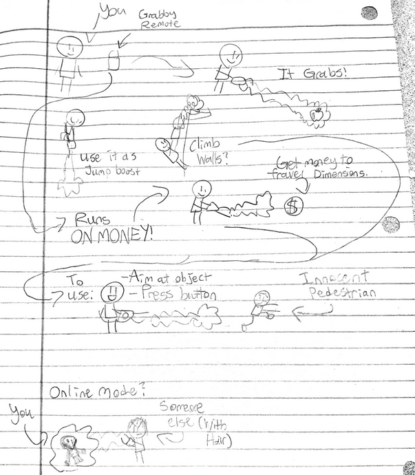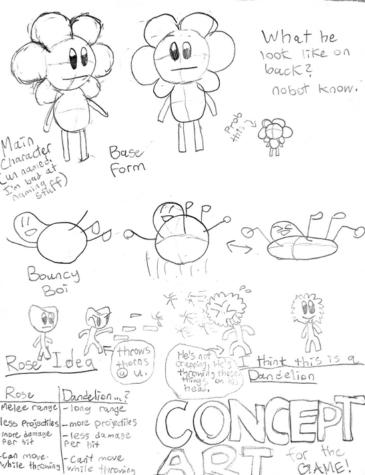Game Design: Mess Around and Find Out
June 7, 2023
One fateful Thursday in Room 502 during Newspaper club, my friend Brian and I decided to start working on a game in Scratch to publish on the Aviator News website (Scratch is a website that lets you code by placing blocks, which simplifies the process of coding). We were both excited to get started, as we both had some experience in making games, but, oh, how things have turned out so far….
To help anyone thinking of making a game, whether in Scratch or just in general, I would like to give you this guide containing lessons learned on my journey. I’ve tried to generalize these tips, so that they don’t just apply to game development, but any creative endeavor.
I’d like to clarify before we move on: we used Scratch, but it was by no means easy. Although compared to the normal process of programming, it certainly streamlined development.
Take Breaks
You may have heard this one before. If you’re frustrated or lost, take a break. This can help you avoid falling into the trap of having been “almost done” for 5 hours at 2 A.M. When you focus on one thing for hours, your brain seems to forget about other important things, such as rest, food, or work. Game development can be stress inducing, but now imagine it’s 3:47 A.M. on a Thursday, and you haven’t finished your homework, and you have that 650 word essay due by the time class starts. That doesn’t bode well for mental health.
Don’t Start off With too Much Ambition
If you’re just starting out game development, you may be tempted to start working on the most complex, grandiose, AAA idea for a game. Brian did that and got hung up for years on one game. These big ideas can leave you stuck on the small details or lost on how to do things. You’ll feel overwhelmed and probably give up.
Don’t Be Afraid to Make Mistakes
When you first start a project, you have to be ready for things to go wrong. Not everything always goes the way you would like it to. Trying new things and finding solutions to problems is a challenge and every challenge is an opportunity to learn. It also helps you to avoid more mistakes in the future.
Don’t Let Your Original Ideas Constrain You
When you are making games, one crucial thing you must have is a character. Most designs for characters begin with concept art. Even when you are working on sprites or other things, you aren’t being forced to stick to your original ideas. Take liberties, try something new, experiment, and don’t be afraid to try again.


On the top is the concept art from when we first started. On the bottom, is the newer concept art that we used in the game. Not everything goes the way you want it to and there will always be some bumps in the road, just make sure you can get past them.
Enjoy Your Time
If you are dead set on making a game, don’t force yourself to do it. If, after a while of coding and designing you realize that you aren’t enjoying it, don’t force yourself to finish it. Game design isn’t for everyone, and it’s pretty tough. If you force yourself to continue working, it can be a detriment not only to the game’s quality but also to your mental health.
Connecting to life
While all of these points are helpful relating to development in games, they are also helpful for other life events. Don’t bite off more than you can chew, try new things, don’t be afraid to make mistakes, and make sure you enjoy it. There is still so much to go through and so much to experience, so please, make sure you enjoy it and live life to the fullest.
When it comes to many important things in life, sometimes you must remember to be patient: “Good things come to those who wait.”


